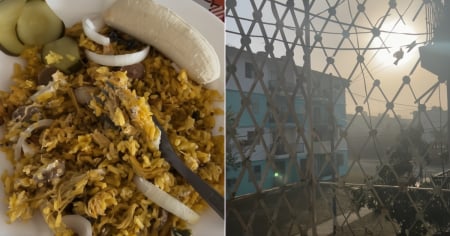A Cuban resident in the United States shared a painful family experience after helping her cousin and her family leave Cuba through the humanitarian parole program. As she recounted in a video posted on TikTok, everything fell apart shortly after they arrived at her home.
The young woman, identified as Amy on the social media platform TikTok, explained that everything was going well at first. However, the conflict arose when her husband got a job for her cousin's husband. Instead of showing gratitude, the attitude of her relatives changed dramatically.
"They started cooking separately; they would go into the room when we arrived. We seemed like the newcomers," Amy recounted, visibly pained by what had happened. She added that the relatives ended up leaving her house without saying a word, and since then, they haven't spoken to her again.
The video has elicited various reactions on social media, where many users expressed solidarity with the young woman and lamented her unfortunate experience of trying to help her family. Others reminded that such conflicts are common when expectations and living arrangements are not managed properly.
Stories like this reflect the challenges many Cubans face when trying to rebuild their lives outside the island, amid a complex migratory and family reality.
Frequently asked questions about Cuban migration and family conflicts in the United States
Why do some Cubans in the United States experience tensions with the relatives they help to emigrate?
Tensions arise when expectations and cohabitation are not properly managed. Often, Cubans who emigrate with the help of family members expect a standard of living that is not always achievable in the short term, which can lead to misunderstandings and a lack of gratitude, as reflected in Amy's experience and other testimonials shared on social media.
What challenges do newly arrived Cubans face in the United States?
Newly arrived Cubans face high living costs, including rent, insurance, and other basic expenses. These economic challenges, along with the need to adapt to a new culture and work environment, can complicate integration and create tensions with the family members who initially welcome and support them.
How can family conflict be avoided when helping Cuban relatives to emigrate?
To avoid conflicts, it is important to establish clear expectations and boundaries from the outset. Open communication about living conditions, financial responsibilities, and support time can help prevent misunderstandings and resentments in the future. It is also helpful for newly arrived family members to quickly seek their own economic independence.
What impact does the migratory phenomenon have on family relationships between Cubans in the United States and those on the island?
The migration phenomenon can create emotional tensions and financial expectations within family relationships. While remittances and financial support are a crucial source of help for families in Cuba, they can also lead to pressures and resentments if relatives abroad fail to meet expectations or feel emotionally exploited.
Filed under:
